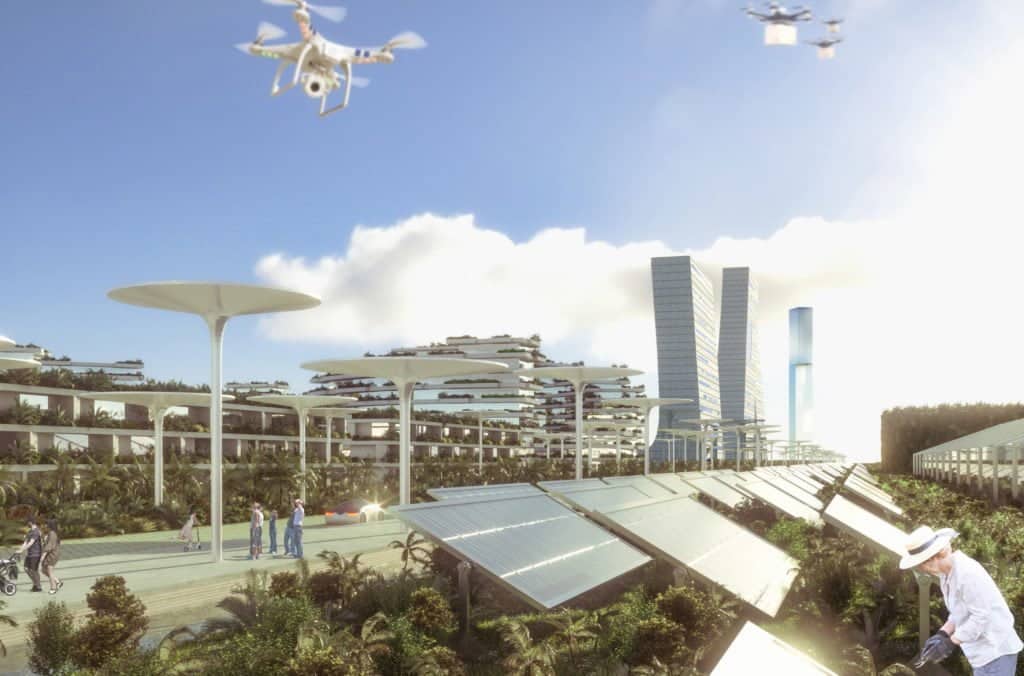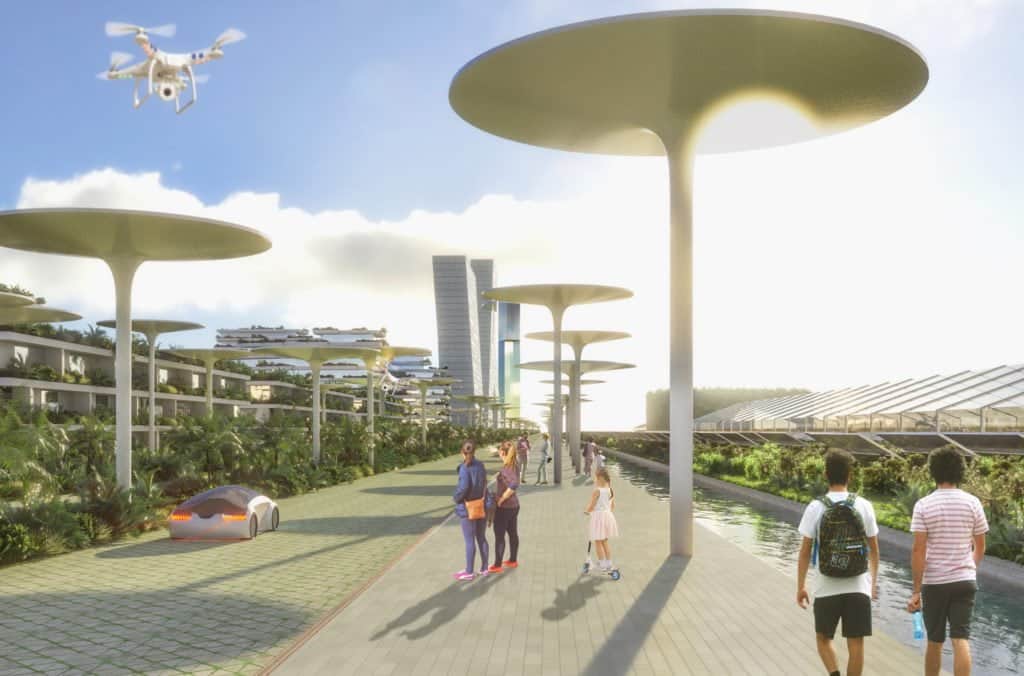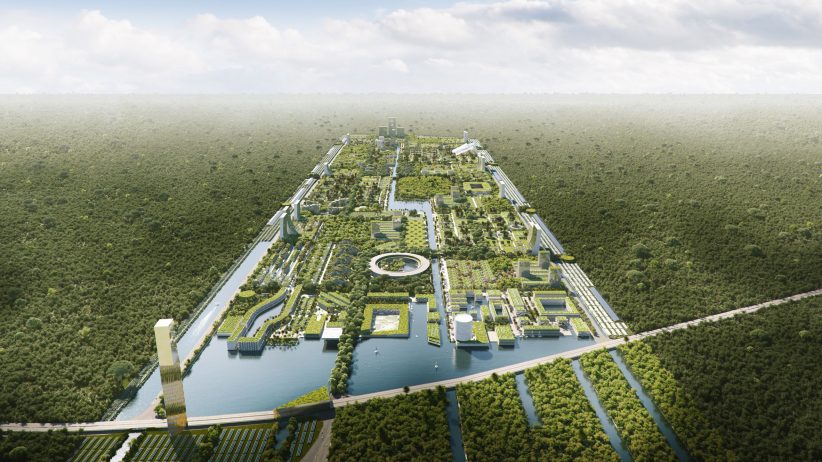Italian architect Stefano Boeri has unveiled plans to create a “Smart Forest City” in Cancun, Mexico. It is designed to be at the forefront of greener and more efficient developments.
Cancun's Smart Forest City is planned to be built on a 557-hectare site near the Mexican city. According to the architect it will contain 7.500.000 plants, including numerous species of trees, shrubs and bushes.
“Smart Forest City Cancun is a botanical garden within a contemporary city, based on the Mayan heritage and its relationships with the natural and sacred world”Said Stefano Boeri. “An urban ecosystem in which nature and city intertwine and act as a single organism.”

The project is part of the Boeri Forest City concept. A series of cities consisting of skyscrapers covered with plants intended to purify the surrounding environment.
The Boeri company hopes that the project (pending authorization) will be built in place of a huge shopping center. Above all, he hopes that it will help transform a site into a forest that had been reduced to a sandpit for hotels.
“Thanks to the new public parks and private gardens, thanks to the green roofs and green facades, the areas actually occupied will be returned to nature through a perfect balance between the quantity of green areas and the building footprint”, reads a statement from the study.
Smart Forest City will absorb 116.000 tons of carbon dioxide with 5.800 tons of CO2 stored each year.
Solutions like these can provide ideas for imagining new types of human settlements, man-made cities for nature and biodiversity.
Big Data for everyone
The data collected in the smart city will be managed with the utmost respect for privacy, and used to improve various aspects of city life.
Sensors distributed within the building fabric collect and share information which is analyzed and transformed into suggestions to support daily life.
Energy flows are monitored to suggest certain energy measures to users, such as making their washing machines or dishwashers work at times that guarantee a cheaper energy rate.
The self-sufficient city
Boeri collaborated with the German engineering company Transsolar to design the Smart Forest City in Cancun as self-sufficient in food and energy production. Among the elements included to promote the circular economy are solar panels and agricultural land, which will be irrigated by a built-in water system.
The water will be collected in a basin at the entrance to the city, which will also include a desalination tower, and then distributed through canals.

Given Cancun's proximity to the Caribbean Sea, the entire urban area is surrounded by "aquatic gardens" that protect it from floods. Renderings of the development show that these waterways can also be used for river transport.
Other features of the future neighborhood include an internal electric and semi-automatic mobility system developed by the urban planning and transportation company MIC (Mobility in Chain). The organization will allow residents to leave their vehicles on the outskirts and use the entire center as a pedestrian area.
Smart City for every need
Smart Forest City Cancun will host 130.000 inhabitants, with a variety of accommodations that will allow the creation of a varied citizenship both economically and professionally, and will also include researchers, professors, students.

The complex is also designed to become an advanced research center with six structures created to address some of the main problems of a more sensitive society: health care, astrophysics and planetary science. There are also coral reef restoration, precision agriculture, regenerative technologies, smart cities, mobility and robotics.


